“I work and earn my money with it,” says Anna Hawliczek. “Camerawork is all I do.” You’ll also hear something quite similar if you ask Serafin Spitzer or Carolina Streinbrecher what they’re currently doing for a living. All three are in their early 30s—and though they’re students at Film Academy Vienna, they’re also already in demand as camera operators.
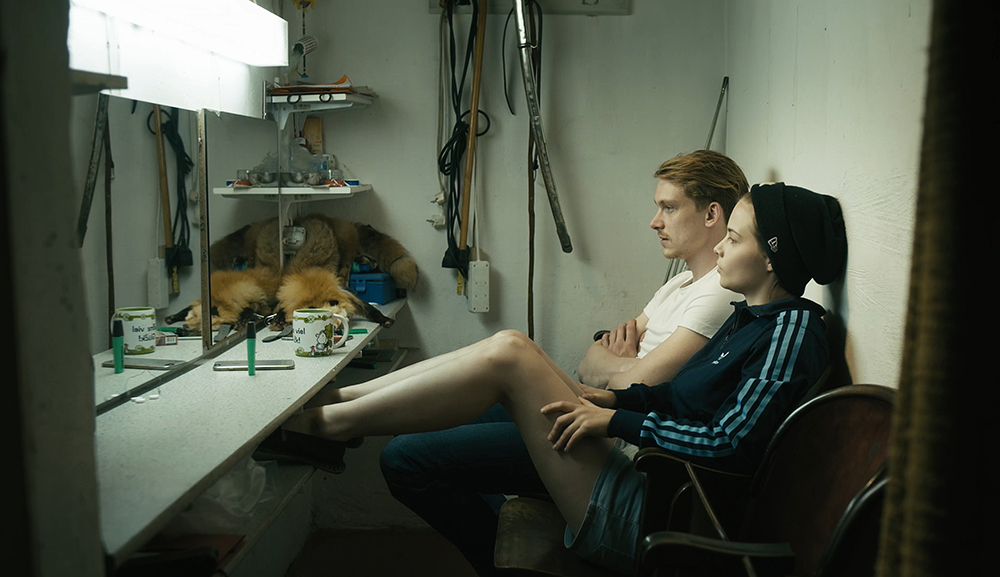
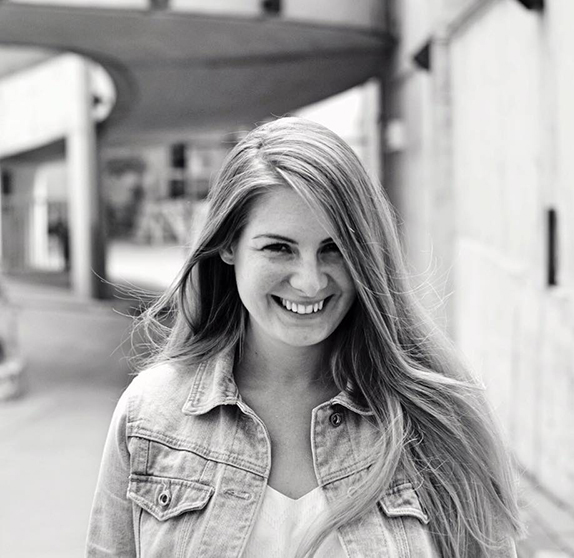
Steinbrecher and Hawliczek are in the same year of study and have been at the mdw since 2010, while Spitzer has been there for two years longer. They all experienced their multi-day admission exams as a challenge, but those who get accepted can enjoy a well-deserved feeling of affirmation—especially if they initially harboured a certain degree of self-doubt, as did Serafin Spitzer: “I’d learned a lot about seeing from my mother, who’s a painter, and I was an artistically interested school student. But when I applied for admission to the Film Academy, I really wasn’t sure whether I’d make a suitable cameraman. What fascinated me about film was really everything that lies ‘behind the image’: the fact that you can convey things of incredible depth that often seem so banal if you just talk about them. But the function that I’d be able to fulfil personally in all of this was something I absolutely didn’t know yet.”
It’s all the more that students value the Academy’s flexible curriculum. In actual fact, you can be filming right from the first weekend; the university provides the equipment and opportunities necessary to realise your own small works without much in the way of monetary investment. The most important thing, however, is the contacts that you make while studying. “This network is extremely important,” says Carolina Steinbrecher: “the people you get to know, the experiences you have, and of course the projects. After all, you don’t make a film on your own! And when you study at the Academy, you get a chance to find out things like: Who does what? With whom can I work and with whom can’t I really work? And you make connections that ideally hold up after graduation, as well.”
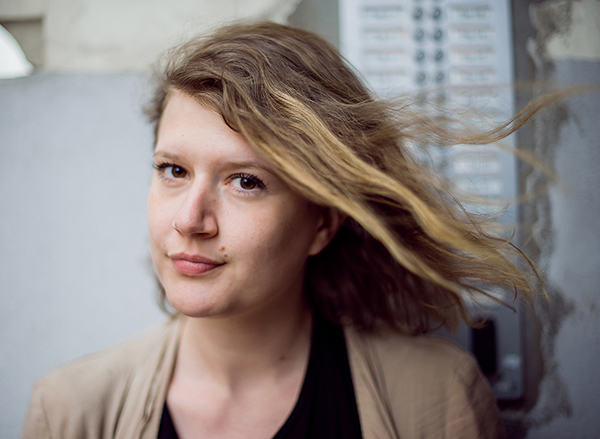
Anna Hawliczek, who—like Steinbrecher—came from the Viennese graphic design school Die Graphische, has always been enthusiastic about Austrian film. “It was partly because I thought these films were so cool that I applied to join Wolfgang Thaler’s class,” explains the busy camerawoman. She’s now formed a production cooperative with her directing colleague Jasmin Baumgartner, and alongside advertising films and music videos, she’s also helped realise two multiple award-winning short films that Baumgartner directed: I See a Darkness and Der Unmensch. Furthermore, Hawliczek never misses an opportunity to gather new experiences. She accompanied Thaler, for instance, as second camera assistant on an adventurous film shoot in the Jordanian desert, and she also supported fellow student Patrick Vollrath on a project as associate producer. Which brings up a nice detail on the side: Theeb and Alles wird gut, Vollrath’s two films that she had a hand in, were both nominated for an Oscar in 2016.
Steinbrecher and Spitzer, as well, are students of Wolfgang Thaler and also studied with Christian Berger (who has since retired). “Berger was a fanatic about lighting, and that fascinated me just as much as the intimacy that Thaler gives rise to with his protagonists thanks to how he often operates the camera himself,” says Serafin Spitzer, who goes on to sum up the two most formative factors in his training: “the access to natural lighting and the camera as a tool that becomes part of your own body.”
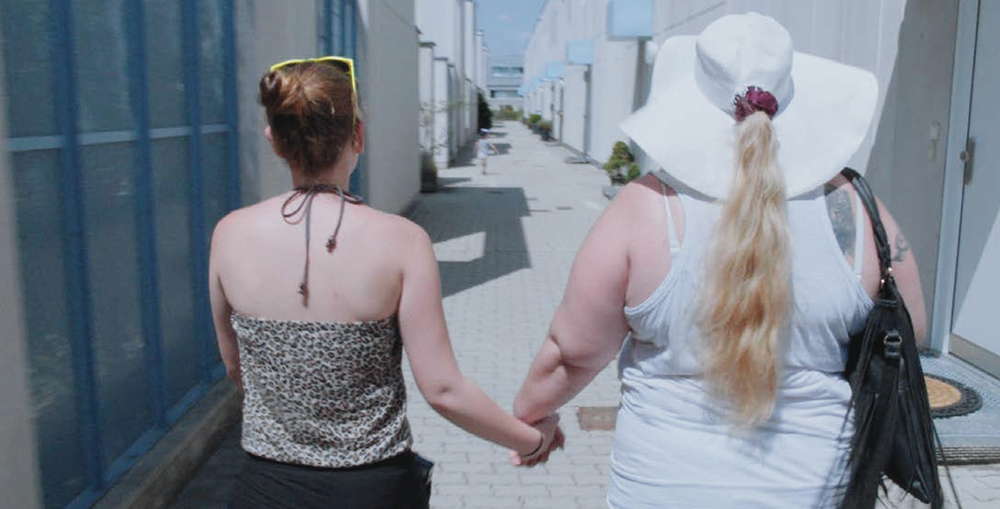
Present-day demands on professionals, all three camera operators agree, go far beyond simply creating the video image. Anna Hawliczek says that she’s involved with most of her projects from “hour zero”. “I don’t at all view camerawork as an isolated domain,” agrees Carolina Steinbrecher, who’s just returned from a semester abroad at the film school HFF Konrad Wolf in Potsdam. “Nice-looking shots aren’t enough. So when preparations get underway, I’m always deeply involved. I want to know as much as possible about a project in advance, most of all about the selection of actors and the locations. That’s essential, I think.”
At international festivals, Carolina Steinbrecher first drew attention to herself with the short film Schwitzen, her initial collaboration with director Iris Blauensteiner; she’d gotten to know Blauensteiner, who studied at Vienna’s Academy of Fine Arts, at what was “a sort of camera operator casting session”. Since then, Steinbrecher has participated in several longer documentaries: Rast, once again in collaboration with Blauensteiner, and Die Wolkenkratzerin, a long-term project by Lisa Weber about a teenager who’s already become a mother.
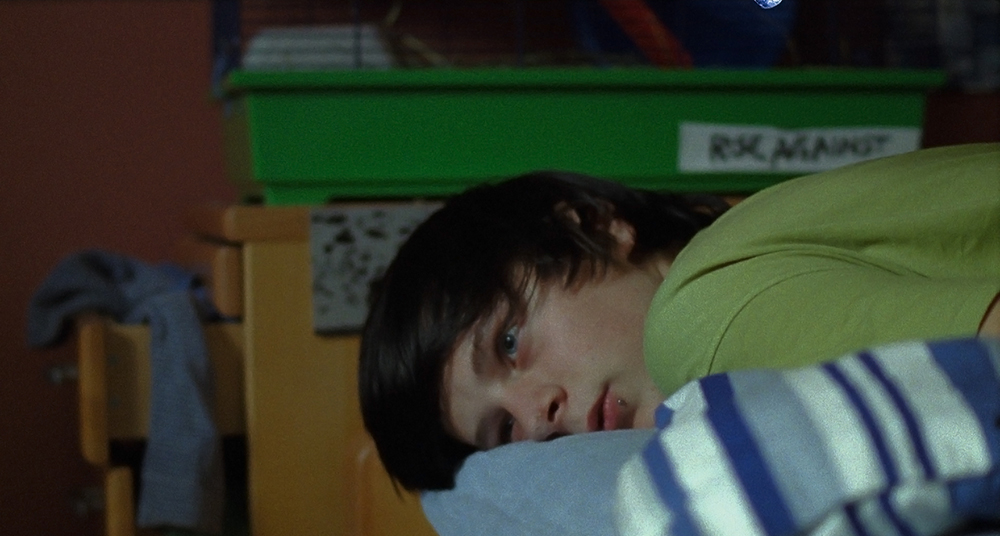
One learns the most from others, goes the conviction of this camerawoman, who’s likewise been second camera assistant to Thaler—including for the Stefan Zweig film Vor der Morgenröte. And of course, there are also the camera operators whose works she watches to get inspired, says Steinbrecher when asked whether she has any direct role models. “Though for me, it’s more interesting to see how people handle their jobs in a human sense. It’s about someone presenting themselves in front of the camera and revealing their innermost being—no matter whether they’re actors or protagonists in a documentary. You’ve got a responsibility towards the people you’re filming. And that’s something I think about a lot.”
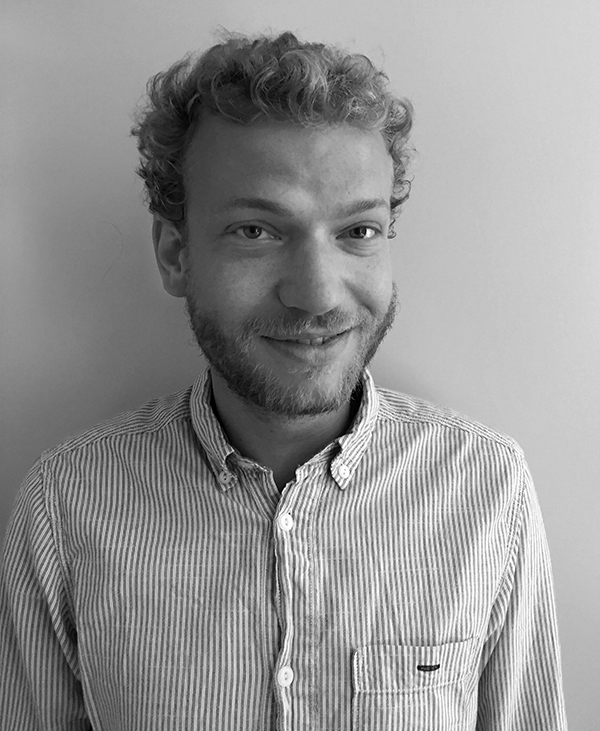
It can be the case, of course, that filming affects not only the people in front of, but also those behind the camera. “It took two full-length films before it became clear to me that you can’t simply jump from one project into the next; some of the one before will stay stuck to you,” acknowledges Spitzer. “That was the case with Lampedusa in Winter, as well as with the portrait Gwendolyn—an unbelievably intense confrontation with death and ageing that stayed with me after we’d finished. But precisely that is what’s so great about documentaries: that you allow yourself to be changed by life, rather than changing life itself like you do in a fictional film.”
Serafin Spitzer is among the younger generation’s best-established camera operators: this year, he’ll already be working on his fifth full-length cinematic production. He’s also got several smaller works under his belt, including a filmic essay on dealing with the mentally ill, a tiny documentary project about biodiversity on the Lower Austrian mountain known as the Jauerling, a video for the Austrian band Wanda, and last but not least classic educational TV programming, including a show about the Austrian State Archives. “You have a two-day shoot to do 25 minutes and have to be extremely well prepared. Which is great practice, because the Academy can’t prepare you for everything. Nor should it! Just like elsewhere in life, I think that taking a certain amount of responsibility for oneself is just plain necessary, here.”

